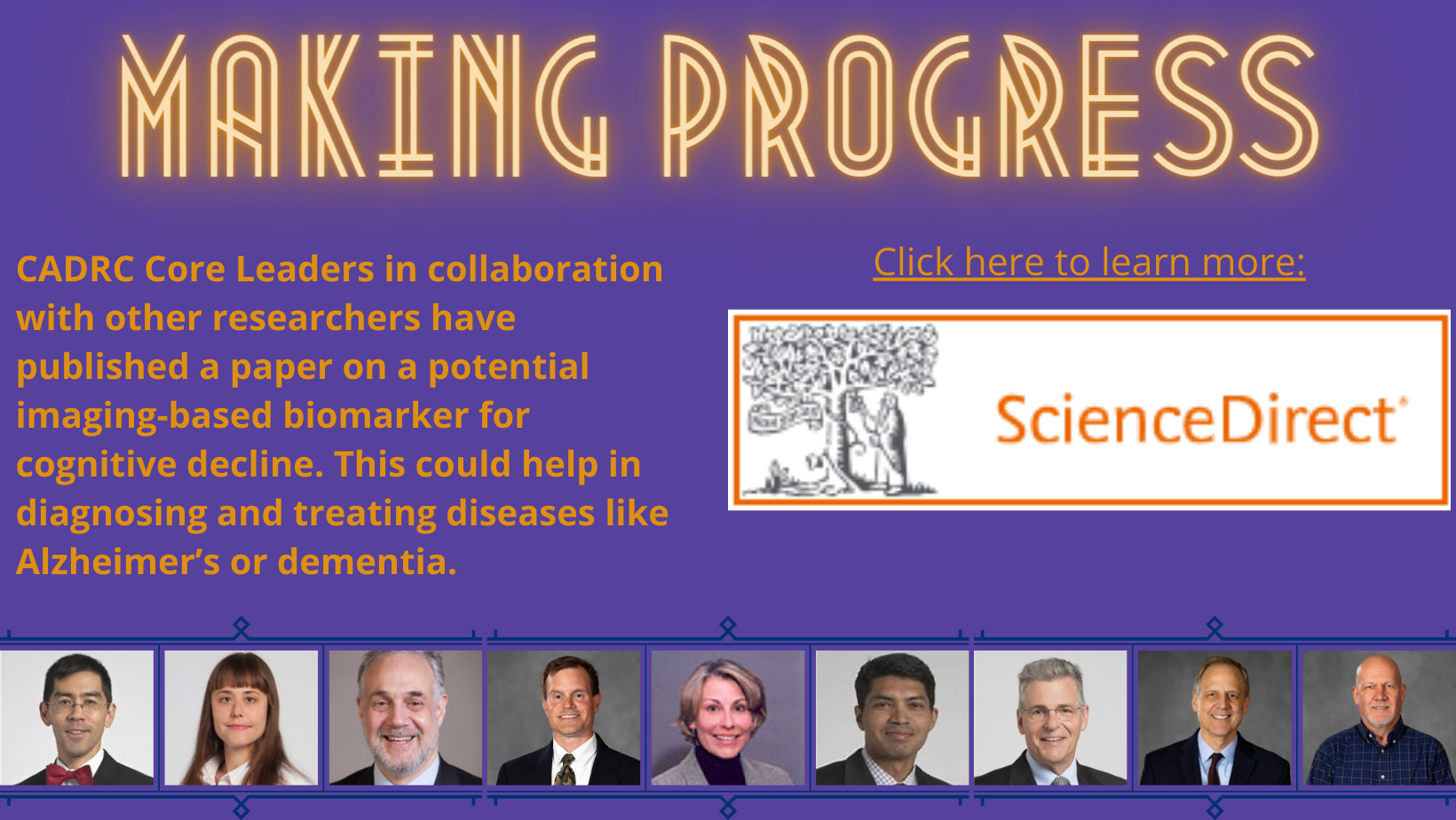
Who
We Are
The CADRC is a research program led by top scientists and doctors from the Cleveland area, working together to learn more about Alzheimer’s Disease and Related Dementias (ADRD).
Where
We Are
Currently, participants or volunteers with our study can choose to be seen at our Cleveland Clinic or University Hospitals site.
What
We Do
The CADRC enrolls people with brain disorders like Alzheimer’s disease or dementia as well as those without memory problems. Our CADRC clinical sites run memory tests, lab tests, and other imaging tests such as MRI scans. The CADRC raises awareness of ADRD and involves people in the community.
Our
Goal
The goal of the CADRC is to help find treatments to improve the lives of patients and their families.
Want to Join Our Research Study?
Call 833-311-2372 or
We Want Your Feedback!
Let us know what information you would like to see on our site:
CADRC Newsletter
Join our mailing list:
Donate Now
Help us reach our goal:
What’s Happening in the world of ADRD?
FDA approves a new medication for Alzheimer’s disease:
On July 2, the U.S. Food and Drug Administration (FDA) approved donanemab which has been developed by Eli Lilly and will be marketed under the name Kisunla™ for the treatment of people living with early symptomatic Alzheimer’s disease, which includes mild cognitive impairment and the mild dementia stage of Alzheimer’s disease, with confirmed amyloid plaques. Amyloid is a protein produced naturally in the body that can clump together to create amyloid plaques characteristic of Alzheimer’s disease. The excessive buildup of amyloid plaques in the brain may lead to memory and thinking issues associated with Alzheimer’s disease.
Donanemab is amyloid plaque-targeting therapy with evidence to support stopping therapy when amyloid plaques are sufficiently lowered and will be available as a once-monthly intravenous (IV) infusion. A late-stage clinical trial with this new compound showed meaningful results for patients who took donanemab, with about 35% lower risk of progression of the disease over a year and a half versus in patients who received a placebo. This amounted to a 4.5 – 7.5 months delay in progression on the clinical scales used to measure decline by the end of the study. Donanemab reduced amyloid plaques on average by 61% at 6 months, 80% at 12 months, and 84% at 18 months compared to the start of the study.
Watch and Learn
What is the CADRC?*
*The production of these videos was supported by Grant No. 1P30AG062428 from the NIA. Its contents are solely the responsibility of the CADRC and do not necessarily represent the official views of the NIA.











